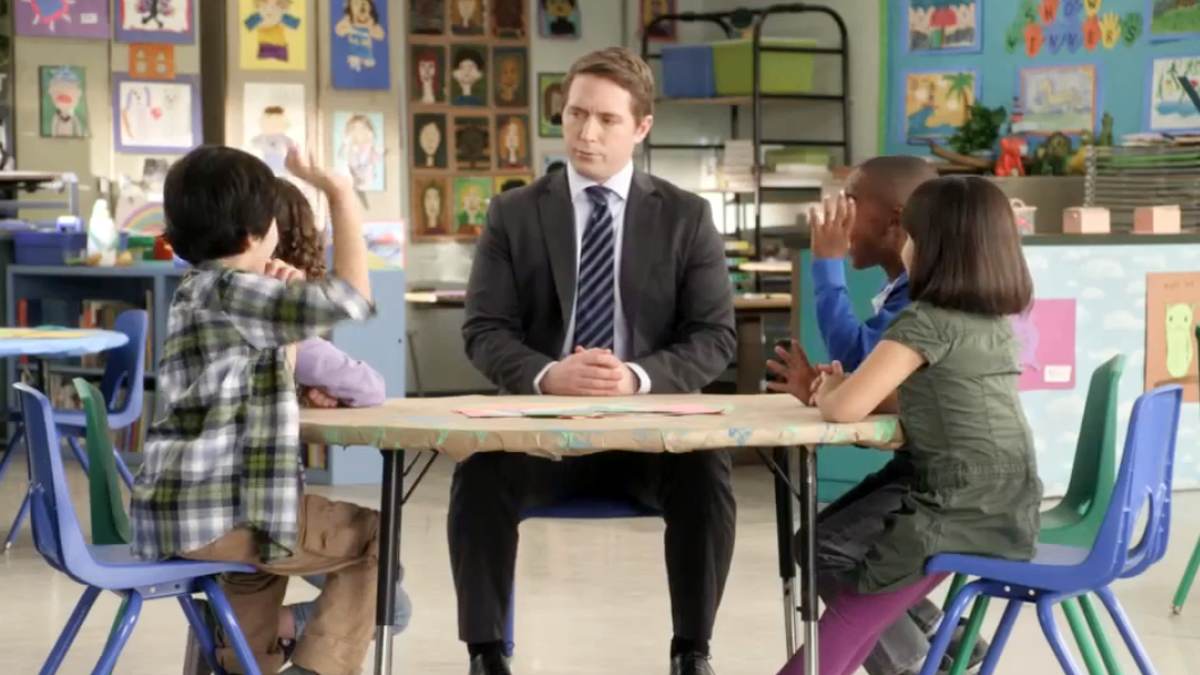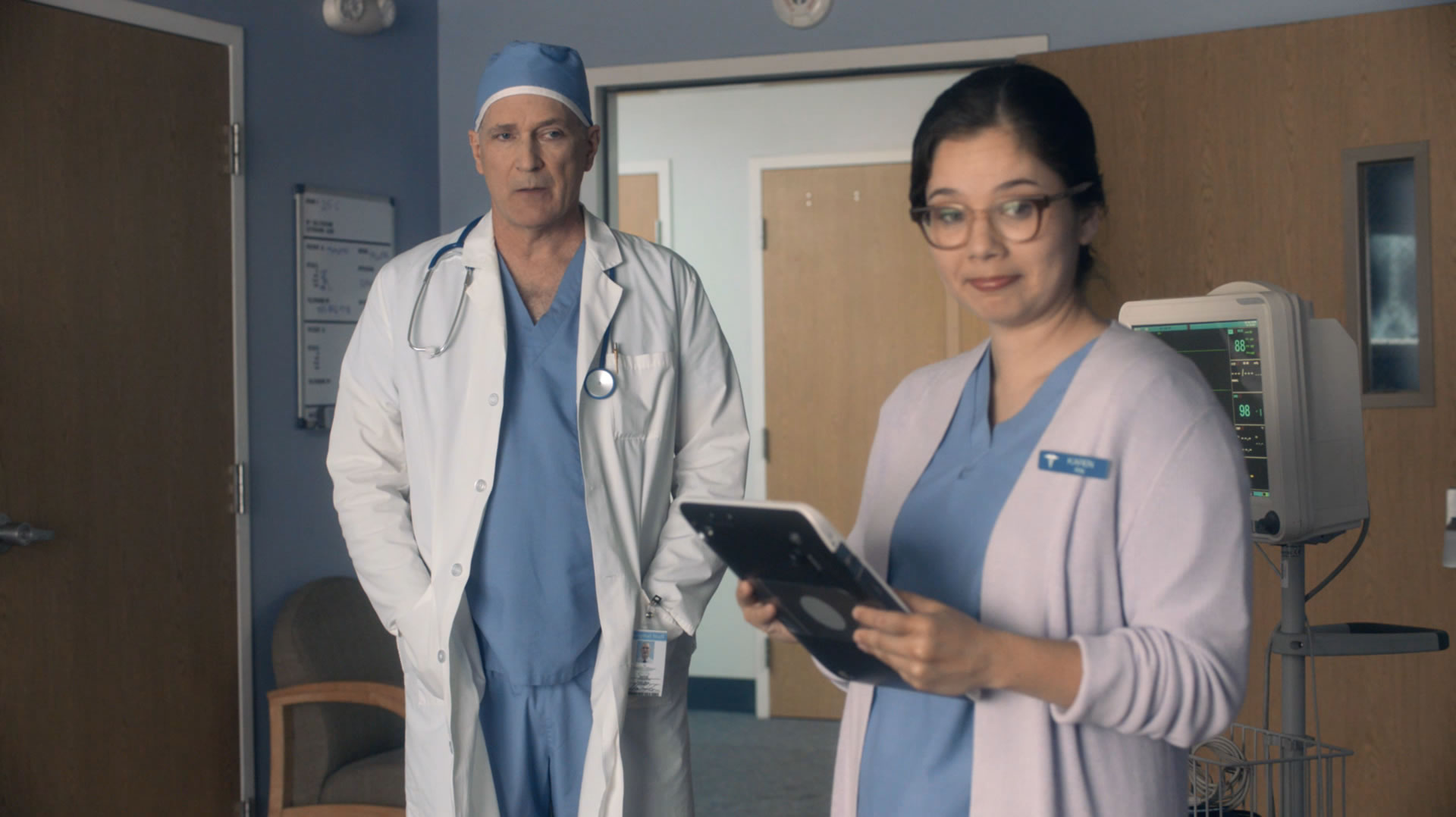A Serious Conversation About Comedy
Teddy Lynn, Founder and Chief Creative Officer at Episode Four, is hosting a talk with his father at Cannes Lions about comedy in the brand environment. Ahead of the session, he sits down with Valerie Vargas from AT&T to get her her take on comedy.
"I grew up in the home of a renowned comedy writer. My father Jonathan wrote one of the BBC’s biggest hit comedy shows ever, ‘Yes Minister’, for which he won the British Academy’s Writer’s Award. He then moved to the US where he has made many funny films including ‘Clue’, ‘My Cousin Vinny’ and ‘The Whole Nine Yards’. As much as anyone can, he knows how to make people laugh and he’s good at teaching it, now offering his advice at film schools around the world. But he has seldom, if ever, had to be funny with the constraints that a brand has… and that’s where I come in.
I have spent the last 20 years helping brands stand out. It’s no secret that brands need to stand out. They need to break through the clutter of thousands of brand messages people see every day. They need to do it on crowded platforms and to audiences who are ever more immune to advertising. One way they can choose to do it is with comedy but that’s often easier said than done.
Later this year in Cannes, my father and I are planning to give a presentation focused on adapting his comedic wisdom to the brand environment we all work in. So in preparation for this, I recently asked my friend and client Valerie Vargas who is responsible advertising at AT&T, one of the largest advertisers in the world, about her take on comedy."

Teddy: Val, why should brands embrace comedy?
Val: Humor is memorable. Ads are generally deemed intrusive, and unless you work in advertising, no one wakes up each day saying “I can’t wait to watch all the ads during my favorite program tonight!” – but if I can give you 10-30 seconds of laughter, you no longer find it intrusive but an entertaining use of your time. And you will remember it. You might even talk or tweet about it. And if you are willing to do that, inevitably the impression of the brand resonates. The best measurements of whether an ad will drive a new customer is first brand recall and then message recall. Humor done well, raises the performance of both of these metrics.
Teddy: Can you point to some successes, some where the above has worked?
Val: Absolutely. We have had several successes. We ran a campaign called ‘Mistaken Silences’ several years ago. It highlighted moments when a customer’s call dropped and the person talking who had just made a joke, didn’t get laughter or a response from the person on the other line but he/she thought they’d offended the other person because they didn’t laugh back at the joke. That pause is humorously uncomfortable. We ran a campaign called ”The Kids” featuring kids and comedian Beck Bennett, who sat around a children’s table discussing the attributes of our Network in the context of our network (“What’s better – faster or slower”?) I mean a cheetah on a grandma’s back is really fast, wouldn’t you say?
We have run many funny and successful spots featuring our retail store rep Lily played by the very talented Milana Vayntrub – dialogue based humor and moments with her engaging with our customers.

Teddy: And have you broken down what made these so successful and some other attempts less so because your first two responses make doing comedy seem like a no-brainer? If humor does it all and it’s easy to do so let’s go for it. After all if a brand can use a joke to generate recognition and recall they are well on their way. But we know it’s not that easy. In fact, one routinely hears people say comedy is hard and anyone who writes for a living can validate that. It’s hard for many reasons but some significant ones for brands attempting it are that comedy is subjective and different people find different things funny.
Val: We have given serious thought to the subject, yes and we certainly agree that attempting humor has many pitfalls. When I think about your first point I believe that to have the greatest appeal, you must poke at a universal truth (or a truth as broadly accepted as you can find) – so the greatest number of people can ‘get the joke’. And further to that, talent and performance matter. You can make or break something based on your actors and your director.
Teddy: I couldn’t agree more. We call the latter mitigating executional risk. Simply put, there are some people who keep getting it right. They have an innate ability to find the humor without offending and it makes sense to work with them because it mitigates risk and increases chances for success. What about the fact that comedy is inherently aggressive, it’s frequently an attack on people or institutions, yet it rarely benefits brands to attack?
Val: Your point about aggression and about comedy being aggressive is one we have considered at great length. We take a lot of care to avoid jokes that could be misinterpreted to be at the expense of someone’s race, gender, etc. - – rather than the joke or situation itself. This becomes really important in casting. I’ll give you an example from two recent campaigns:
- OK is not OK (a wireless network campaign) – the spot features a surgeon, and clearly not one you’d want operating on you (he has just been reinstated, his dismissive demeanor, etc). We cast it as a ~40 year-old white male. If we’d cast as a diverse person, we run the risk of it being perceived that the diverse person couldn’t be a quality doctor, which has nothing to do with the spot or scenario. And we’d never want to imply that in any way.
- DIRECTV genre spots – we had a play on the Titanic drama where a young woman is floating on a large iceberg and her love is in the freezing water. He has just one more thing he wants her to promise – to quit cable. At the end, he asks if there isn’t any room for him on the (spacious) iceberg and she says no. We had to cast the male in the water as white – otherwise the female would be casting off someone diverse to die. Again, it has nothing to do with the spot or scenario but we wouldn’t want audiences to perceive it that way.

Teddy: Fashion often dictates comedy. Something might be topically funny today and of course might therefor not be funny tomorrow. How do you approach that?
Val: I think less about fashion and more about what’s right for my brand. In our world for example, I can use sophomoric and sometimes slapstick humor with DIRECTV but that doesn’t work well for AT&T. With AT&T, I can use everyday life situations with a twist that are dialogue based, but that falls flat for the DIRECTV brand.
Teddy: So, it may seem surprising coming from an agency creative, but I believe comedy MUST be tested. My reason for saying this is that it’s simply impossible to know whether people will find something funny without trying it. Standups try out their work, movies run test screenings and TV shows create pilots. The tricky part about testing branded comedy however is that comedy is best consumed communally and yet advertising is usually consumed alone. How do you go about trying out your work?
Val: We will run concepts through a number of internal groups – actually to gut check - not so much the humor - but whether we offend anyone significantly with the humor. We do this in groups rather than 1x1, as humor is best experienced as a group (even though we know you tend to consume video individually) – we find that the audience will feed off one another with commentary that provides insights for us in developing the work.
Teddy: And despite taking every precaution, what happens when you are wrong? When people don’t agree that what you set out to make is funny?
Val: If such work goes into market… I have one in past experience I care not to relive… we continued social listening for the week after it launched, and once we determined it was causing heated tension among some audiences we pulled the creative. No creative is worth damaging your brand.